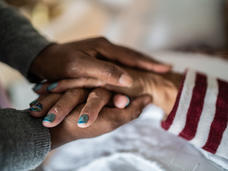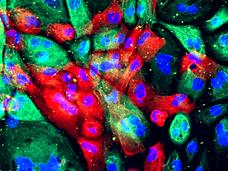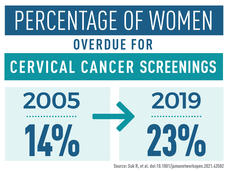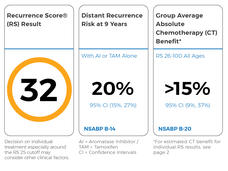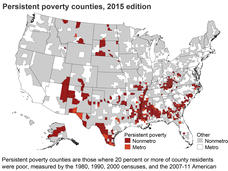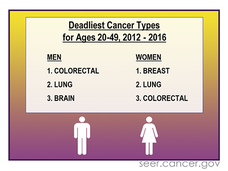Disparities - Cancer Currents Blog
News and commentaries about cancer-related racial/ethnic and socioeconomic disparities. Includes stories on factors that influence disparities and efforts to address them.
-
How Do Black People with Cancer View Clinical Research?
Black people with cancer are much less likely to join clinical trials than White patients. Results from a new study may help explain why and help research staff talk with and recruit more Black participants.
-
Program Connects Adolescents and Young Adults to Quality Cancer Care
A 10-year-old program at an NCI-Designated Cancer Center has had substantial success at increasing the number of adolescents and young adults with cancer who get recommended treatment and services, including greater clinical trial participation and use of fertility services.
-
Treating the Whole Person: How Cancer Centers Are Addressing Social Needs
While treating people’s health-related social needs has always been a part of health care in one form or other, cancer centers and community cancer clinics increasingly are viewing the people they treat through a social lens and addressing social needs—including transportation, food, and housing—as part of patient care.
-
Program Helps Medically Underserved, Minority Cancer Survivors Be More Active
A program in Texas helped minority and medically underserved cancer survivors get much more physical activity, according to a new study. Participants also reported improved physical functioning and quality of life.
-
Q&A: Learning About the Cancer Care Challenges LGBTQ+ People Face
Gwendolyn Quinn, Ph.D., a health psychologist at NYU Langone Health Perlmutter Cancer Center, discusses the challenges faced by sexual and gender minority people being treated for cancer and ways to address them.
-
LGBTQ+ Voices: Listening to Sexual and Gender Minority People Affected by Cancer
LGBTQ+ people, also known as sexual and gender minorities (SGM), with cancer may face challenges that non-SGM people do not face. The breadth and depth of these disparities aren't well known, but there’s growing research on the challenges this diverse group faces.
-
From Awareness to Action: Putting Cancer Disparities in the Rearview Mirror
Eliminating disparities will require the efforts of people from across a broad spectrum of scientific research, according to leading experts, and must include working in concert with people and organizations in the community.
-
ENLACE Study Explores Colorectal Cancer in Hispanic and Latino People
The ENLACE study is the first to use cutting-edge technologies to describe the molecular features of colorectal tumors in Hispanic and Latino people. The study’s goals are to improve treatments and increase Hispanic/Latino engagement in cancer research.
-
3-in-1 Approach Helps Women in Rural Areas Get Cancer Screenings
In a new study, providing rural women with an interactive video about cancer screening and follow-up calls with patient navigators helped get them up to date on screenings for breast, cervical, and colorectal cancer.
-
Study Finds Disparities in Access to Opioids for Cancer Pain at End of Life
Black and Hispanic patients nearing the end of life are less likely than White patients to get opioids needed to control their cancer pain, a new study shows. Black patients were also more likely than White patients to undergo urine tests that screen for drugs.
-
Is a Genomic Test Better at Finding Aggressive Prostate Cancer?
The Decipher genomic test found high-risk prostate cancer even when conventional tests said the tumors were lower risk. This discrepancy appeared to happen more frequently for African-American men.
-
Working to Close the Cancer Screening Gap Caused by COVID
Many hospitals and community health centers are trying to increase cancer screening rates after the COVID pandemic caused them to plummet. The largest effort aims to add a total of 70,000 additional monthly screening tests over a 6-month period.
-
Telehealth-Based Cancer Care Surged during COVID. Will It Continue?
Experts say studies are needed on how to best transition telehealth from a temporary solution during the pandemic to a permanent part of cancer care that’s accessible to all who need it.
-
Why Are Many Women Overdue for Cervical Cancer Screening?
The rates of timely cervical cancer screening fell between 2005 and 2019, researchers found, and disparities existed among groups of women. The most common reason for not receiving timely screening was lack of knowledge about screening or not knowing they needed screening.
-
Black Patients Are More Likely to Die of Cancer—Here’s How One Group Is Tackling That
A program called ACCURE is showing promise toward reducing disparities among Black and White patients with breast and lung cancers. ACCURE involves system-wide changes at cancer centers to overcome structural and cultural barriers in patient care.
-
New Risk Model Aims to Reduce Breast Cancer Disparities in Black Women
Most breast cancer risk tools were developed with data mainly from White women and don’t work as well for Black women. A new tool that estimates risk for Black women may help identify those who might benefit from earlier screening, enabling earlier diagnosis and treatment.
-
Texting May Help Reduce Disparities in Colorectal Cancer Screening
Combining text messaging with mailing people free at-home FIT kits helped increase screening for colorectal cancer among a predominantly Black population, a new study has found. It’s part of a larger effort to reduce disparities in cancer screening.
-
Oncotype DX Breast Cancer Test May Be Less Accurate for Black Patients
The test, which helps guide treatment decisions, was not as good at predicting the risk of death from breast cancer for Black patients as for White patients, a new study has found. The findings highlight the need for greater racial diversity in research studies.
-
Persistent Poverty Linked to Increased Risk of Dying from Cancer
People who live in counties in the United States with persistent poverty are more likely to die from cancer than people in other counties, a new study shows, highlighting the influence of social and structural factors on health.
-
Why Is Colorectal Cancer Rising Rapidly among Young Adults?
Diagnoses of colorectal cancer continue to increase in younger adults. In September 2020, more than 400 leading scientists and patient advocates participated in an NCI/NIEHS-sponsored symposium to identify research priorities that address important questions about this concerning trend.







